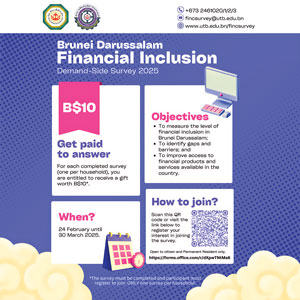(ANN/THE STAR) – Urbanisation has brought about numerous changes in our lifestyles, particularly regarding our food choices. Unfortunately, these changes have resulted in increased consumption of salt, oil and sugar (SOS) in our diets, especially among children.
This increase in SOS consumption has serious repercussions, as it is associated with the emergence of various non-communicable diseases (NCDs).
So, how can parents effectively reduce SOS in our little ones?

Breaking down SOS
Salt, scientifically known as sodium chloride (NaCl), is a common ingredient found in many foods, such as milk, meat and shellfish, and often used to enhance flavour. However, a significant amount of salt in our diet originates from commercially pre-prepared foods (instant noodles, salted eggs, canned meats, potato chips). Even condiments and sauces like oyster sauce, tomato/chilli sauce and fish sauce can contain a lot of salt.
The recommended daily intake of sodium for children is:
Infants (birth to six months): 120mg
Babies (seven to 12 months): 370mg
Toddlers (one to three years): 1,000mg
Children (four to eight years): 1,200mg
Preteens and adolescents (nine to 18 years): 1,500mg
Oils are a type of dietary fat made up of saturated or unsaturated fatty acids, found in vegetable, nut or seed oils. Dietary oil intake often comes from consuming foods cooked in excessive oil like deep-fried foods and fast food. The suggested daily consumption of oils for children is a maximum of two-and-a-half teaspoons of oil, butter or margarine.
Sugar, a carbohydrate, is commonly associated with the sweet taste in foods, such as local kuihs, and sugar-sweetened beverages. The most familiar form is table sugar, also known as sucrose. Other types of sugars can be found naturally in fruits and honey, added during preparation and prepackaged foods. High sugar intake from all sources should be avoided as it greatly adds to the overall sugar consumption in our diet.
Excessive carbohydrate consumption can lead to excessive sugar intake, and the recommended daily sugar intake for children is less than 10 per cent of their total energy intake.
Importance of reducing SOS
Research has indicated a strong link between excessive consumption of SOS and various health issues:
> Excessive salt intake may lead to high blood pressure and stroke.
> Excessive intake of fat and oil has been associated with an increased risk of developing obesity, coronary heart disease and certain types of cancers.
> Excessive intake of sugar results in a high intake of calories, which can lead to obesity and an increased risk of developing diabetes and dental caries.
Tips to reduce SOS in children:
> Eat a healthy and balanced diet
> Create a healthy eating environment
> Reduce salt intake
> Reduce oil and fat intake
> Reduce sugar intake
By reducing salt, oil and sugar intake, parents can assist their little ones in selecting healthier food options, thereby preventing the onset of NCDs.
By making small adjustments, parents can engage in proactive and preventive measures early on, potentially leading to a meaningful impact on their child’s long-term health.







